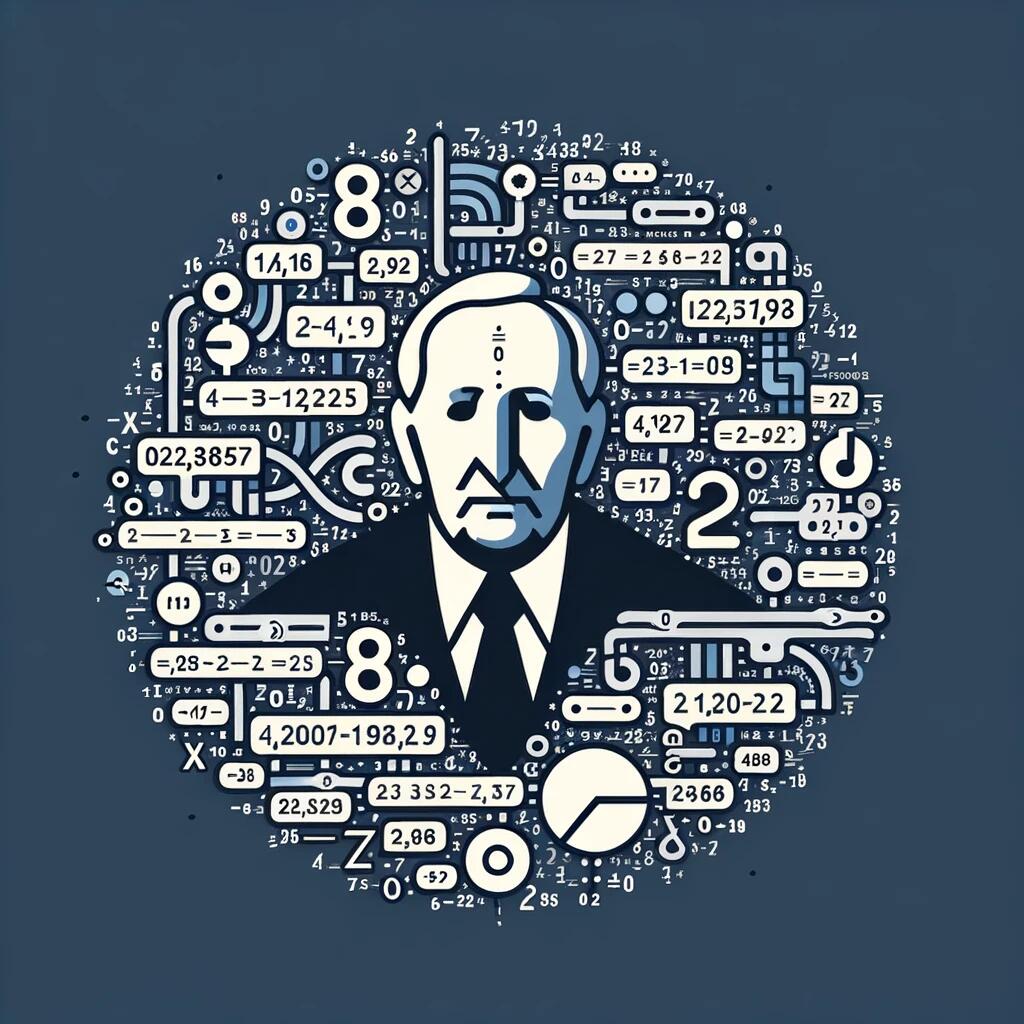geeknik on Nostr: Kolmogorov complexity, named after the Russian mathematician Andrey Kolmogorov, is a ...
Kolmogorov complexity, named after the Russian mathematician Andrey Kolmogorov, is a concept from algorithmic information theory that measures the complexity of a data object (such as a string of text, a sequence of numbers, etc.) in terms of the shortest possible description of that object. Specifically, it's defined as the length of the shortest computer program (in binary code) that can produce the object as output when run on a universal reference machine such as a universal Turing machine.
The underlying idea behind Kolmogorov complexity is to quantify the amount of information or structure within an object. Here are some key points to understand:
1. Relative to a Universal Description Language: The Kolmogorov complexity of a string is relative to the choice of universal computing device or equivalent formal language used to write the program. However, the choice of machine only affects the complexity by a constant factor. That is, the complexity is machine-independent up to an additive constant, because any universal computing device can simulate any other with at most a fixed overhead.
2. Randomness and Incompressibility: A string is said to have high Kolmogorov complexity if the shortest program that generates it is nearly as long as the string itself. Such strings are considered random or incompressible because there is no simpler description than the string itself. Conversely, a string with a discernible pattern has low Kolmogorov complexity because it can be generated by a short program that describes the pattern.
3. Uncomputability: A crucial aspect of Kolmogorov complexity is that there is no algorithm that can compute the exact Kolmogorov complexity of an arbitrary string. This is a consequence of the halting problem being undecidable: if you could compute the Kolmogorov complexity, you would be able to solve the halting problem, which is known to be impossible.
4. Applications: Kolmogorov complexity is a theoretical construct with applications in several areas of computer science, including the theory of computation, algorithmic randomness, and data compression. It provides a rigorous way to discuss the concept of randomness and complexity of individual objects, rather than just probabilistic ensembles of objects.
In summary, Kolmogorov complexity offers a way to objectively measure the complexity of data by asking how concisely the data can be represented. It does so in a manner that is largely independent of the language used to describe the data and is applicable to any object that can be digitally encoded. However, it's important to note that while the concept is well-defined in theory, the uncomputability of Kolmogorov complexity means that it cannot be applied to calculate the exact complexity of real-world data in a general way.
https://eprint.iacr.org/2023/1765
The underlying idea behind Kolmogorov complexity is to quantify the amount of information or structure within an object. Here are some key points to understand:
1. Relative to a Universal Description Language: The Kolmogorov complexity of a string is relative to the choice of universal computing device or equivalent formal language used to write the program. However, the choice of machine only affects the complexity by a constant factor. That is, the complexity is machine-independent up to an additive constant, because any universal computing device can simulate any other with at most a fixed overhead.
2. Randomness and Incompressibility: A string is said to have high Kolmogorov complexity if the shortest program that generates it is nearly as long as the string itself. Such strings are considered random or incompressible because there is no simpler description than the string itself. Conversely, a string with a discernible pattern has low Kolmogorov complexity because it can be generated by a short program that describes the pattern.
3. Uncomputability: A crucial aspect of Kolmogorov complexity is that there is no algorithm that can compute the exact Kolmogorov complexity of an arbitrary string. This is a consequence of the halting problem being undecidable: if you could compute the Kolmogorov complexity, you would be able to solve the halting problem, which is known to be impossible.
4. Applications: Kolmogorov complexity is a theoretical construct with applications in several areas of computer science, including the theory of computation, algorithmic randomness, and data compression. It provides a rigorous way to discuss the concept of randomness and complexity of individual objects, rather than just probabilistic ensembles of objects.
In summary, Kolmogorov complexity offers a way to objectively measure the complexity of data by asking how concisely the data can be represented. It does so in a manner that is largely independent of the language used to describe the data and is applicable to any object that can be digitally encoded. However, it's important to note that while the concept is well-defined in theory, the uncomputability of Kolmogorov complexity means that it cannot be applied to calculate the exact complexity of real-world data in a general way.
https://eprint.iacr.org/2023/1765

